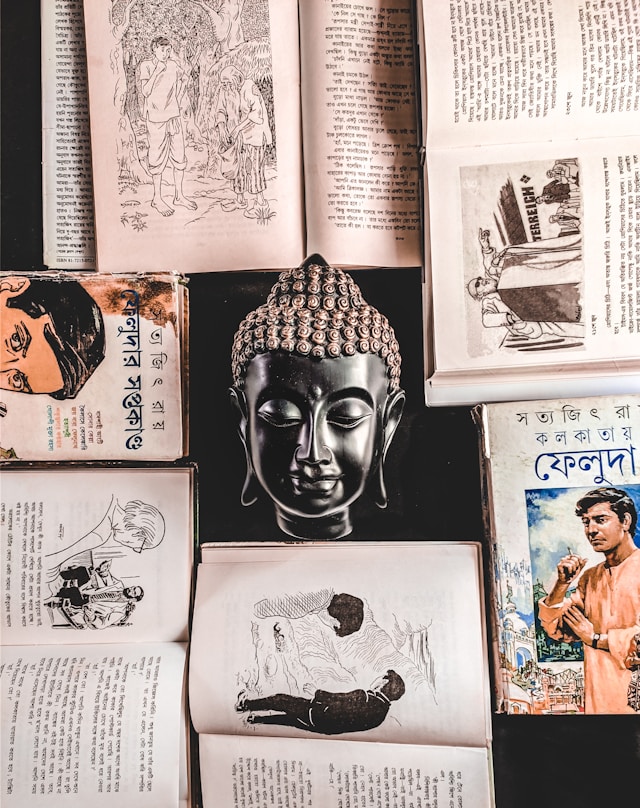Diversifying Literature: Saadat Hasan Manto
It wasn’t until I had completed my A-levels that I began to question the lack of diversity in the literature I was consuming. Over the years, despite immersing myself in various genres and dabbling in literature from all over the world, I have never been able to connect to the references written in Toshikazu Kawaguchi’s works or the lifestyle depicted by Elif Shafak.
During this search for South-Asian-centred literature, which not only resonated with me more but also uplifted the voices of South Asian women, I discovered Sadaat Hasan Manto.
Sadaat Hasan Manto is a Pakistani writer, journalist, and playwright who was born in India but was forced to relocate to Pakistan post-partition as a Muslim residing in India. Despite his brief career, Manto’s eloquently crafted short stories, written in Urdu and now translated into English, explore the tragedies of the India-Pakistan partition, juxtaposing the Independence Day celebrations I was so used to seeing every 14th August.
Manto’s work delves into the lives of society’s marginalised, following the lives of broken families, gangs, prostitutes, and rape victims. His stories are direct, laced with moral outrage, and eager to uplift the voiceless figures in Indian society. His stance on the partition is evident in ‘The Dog of Tithwal’, which displays the confusion of a dog who is caught in the firearms of the two countries and ultimately ends up ‘dying a dog’s death’ – reflecting the Hindu idiom of ‘dying a horrible death’ as the soldiers on each side shoot the dog for running to the opposing country.
The story emphasises the lack of rationality and morality of the partition
The story emphasises the lack of rationality and morality of the partition, as it is remarked that “dogs, too, better now make up their minds as to whether they’re Indian or Pakistani”, as the story escalates from an innocent play with the dog to the dog representing which country was more powerful.
Manto brings light to the lack of empathy towards the lives of individuals suffering during the partition, as, like the dog, Manto found himself caught between the two countries of Pakistan and India. Toba Tek Singh, one of Manto’s most notable works, explores the exchange of a group of Hindu and Muslim mental asylum patients between India and Pakistan retrospectively. The story explores the confusion of the patients, who ask: “Why are we being deported to India? We don’t even know their language” as they realise they would be living in an entirely different country. Toba Tek Singh reads as a microcosm of the psychological trauma and imbalance experienced by people of different social classes (castes) and religions due to the partition, with the character of Toba Tek Singh ultimately dying “in the middle, on a nameless piece of earth.” Toba Tek Singh, being the first story of Manto’s that I had encountered, gave me an entirely new perspective on the partition of India and Pakistan, shining a light on innocent people who get caught up in the political turmoil and ultimately suffer a loss of identity.
Following this story, I was eager to read more of Manto’s works, as I found myself exposed to the harsh realities of the partition. The most memorable and horrifically impactful story, for me, is ‘Khol Do’, or ‘open up’ in English.
Manto provides a voice for the countless women who were abused and raped because of the partition and its violence
Manto provides a voice for the countless women who were abused and raped because of the partition and its violence, as he narrates the frantic search of a father, Sirajuddin, for his daughter, Sakina, whom he lost on the way to a camp, while being encapsulated by “mayhem. Someone looking for his son, another for his mother; someone for his wife, another for his wife’s daughter.” Eventually, Sakina is found on the brink of death after being raped by the men who were told to find her. Manto concludes the story with Sakina being taken to a doctor, who asks to “open the window,” and as a result, Sakina lowers her shalwar (trousers) while her dad rejoices upon her being alive. ‘Khol Do’ displays the harsh realities of women living during the partition who were marginalised and reveals the dark truth behind the day, challenging the celebratory narrative commonly associated with Pakistan’s independence.
Manto’s stories amplify the voice of the fourteen million people who were moved during the partition while simultaneously mourning the two million who died.
While his stories may be seen as uncomfortable and shocking, to say the least, they reveal the violent truth behind the partition
While his stories may be seen as uncomfortable and shocking, to say the least, they reveal the violent truth behind the partition. His literature serves as a poignant reminder to remember those who endured years of violence, confusion, and grief as Pakistan celebrates independence every year.

Comments